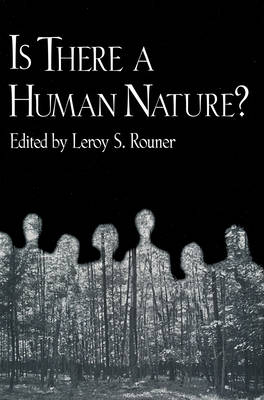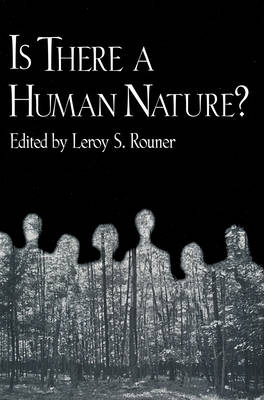
- Retrait gratuit dans votre magasin Club
- 7.000.000 titres dans notre catalogue
- Payer en toute sécurité
- Toujours un magasin près de chez vous
- Retrait gratuit dans votre magasin Club
- 7.000.0000 titres dans notre catalogue
- Payer en toute sécurité
- Toujours un magasin près de chez vous
Is There a Human Nature
Description
We humans are deeply convinced that there is something distinct about us as a species, but we have never been able to agree on what it is. In the West, the religion of Israel argued that the will is the fundamental vehicle of our relation to God and therefore the determining characteristic of our humanity. Greek philosophy countered with the view that reason is the definitively human characteristic, since humans are the only self-aware animal. Today that unresolved argument is further complicated by the pluralism of contemporary culture and the surprisingly different ways in which different groups understand themselves.
These essays approach the question in two different ways. The first is a philosophical attempt at definition. Bhikhu Parekh agrees that there is a universal human nature but that there is also a nature which is culture-specific and a third which is self-reflective. Daniel O. Dahlstrom argues that we know our nature only when it is recognized by our culture and that the liberal democratic idea of the state both celebrates and threatens the notion of fundamental human equality. Stanley H. Rosen gives a contemporary interpretation of the classical Greek view in proposing that philosophy is an expression of our humanity, an openness to the human love of wisdom. Knud Haakonssen is not ready to endorse any given orthodoxy regarding human nature but argues rather for openness to experimental views and promising hypothesis. Lisa Sowle Cahill defends a feminist interpretation of Catholic moral theology; we must be able to say that the battering of women is everywhere and always wrong. And Robert Cummings Neville notes that being human means having the obligation to take responsibility for our history.
The second group of essays recognizes that we are what we do as well as what we say we are and asks what it means to be genuinely humane. Glenn C. Loury criticizes Murray and Herrnstein's The Bell Curve as advocacy for a particular elitist view of human nature, which he rejects. Ray L. Hart explores the moral "fault" and "fallenness" in human nature. Graham Parkes insists that human nature is not morally privileged but must be seen as part of nature taken as a whole. Tu Wei-ming explores the Confucian idea of filial piety as a key to global ethics. Leroy S. Rouner examines Kierkegaard's psychology of sin, and Sissela Bok uses the metaphor of the lifeboat to see what extreme situations reveal about our nature as human beings.
These essays tend to view true humanity as partly given but largely an achievement. Human nature is now more varied than in the past.
Spécifications
Parties prenantes
- Editeur:
Contenu
- Nombre de pages :
- 230
- Langue:
- Anglais
- Collection :
- Tome:
- n° 18
Caractéristiques
- EAN:
- 9780268011819
- Date de parution :
- 15-12-97
- Format:
- Livre relié
- Format numérique:
- Genaaid
- Dimensions :
- 161 mm x 238 mm
- Poids :
- 553 g

Les avis
Nous publions uniquement les avis qui respectent les conditions requises. Consultez nos conditions pour les avis.





